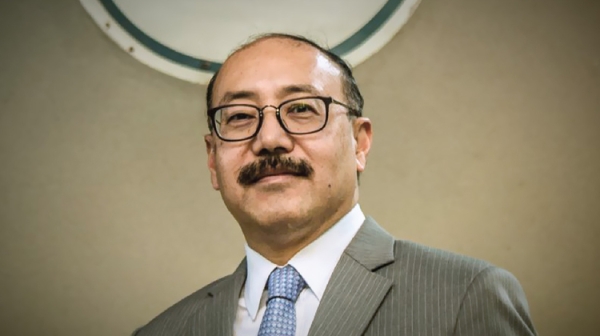The Indian foreign secretary, Harsh Vardhan Shringla, recently gave a speech in which he stated that the COVID 19 pandemic had changed the norms of globalization. However, the foreign secretary was also quick to note that the changing situation also threw up some opportunities for the nation’s rising tech firms.
In a virtual address to The National Association of Software and Service Companies at the start of June 2020, Shringla stated that the changed global conditions would lead to a more significant role for e-commerce. Much higher dependence on information technology services, and increased importance on technology-led solutions to business.
The speech was one of the most significant moments for Shringla since he took over the foreign secretary position in December 2019. He used the speech to emphasize India’s role in continuing the trend towards globalization in a bid to counter certain protectionist and isolationist tendencies that have become apparent in other nations such as the USA.

Although the current pandemic has temporarily put a check on globalization, Shringla announced a vision that could make markets and systems more flexible to the changing global situation. Key among these efforts would be a bid to use technology to ensure that global supply chains remained unaffected by any sudden shifts in global trade and manufacture.
Shringla noted that India’s role in the global IT sector has been hugely influential in the past 20 years. He stated that India’s contributions in information technologies and the business processing management sectors had amounted to over 55% of the world’s outsourcing market.
Key among these areas are India’s Fintech companies that have proven to have a transformative effect in promoting growth among rural communities, as well as boosting women’s participation in the economy.
There are various sectors concerned with the development of Fintech and alternatives to facilitate transactions. For example, the usage of digital payment methods is particularly significant in the iGaming industry, as playing at online casinos typically requires safe and secure transactions. Many available casinos in India offer digital wallets like Skrill and NETELLER to make the payment process as convenient, efficient, and secure as possible for online casino players in the country.
The ability to make international payments is an integral part of the globalization process. This is something that has been highlighted through the fact that there has been a 40% increase in funding for Fintech companies in India in the first three months of 2020.
Shringla highlighted how Indian digital payment systems like BHIM and Rupay have found success in countries such as Singapore. In contrast, the global digital platform APIX has successfully linked financial institutions and Fintech firms.
However, Shringla also used the speech to reaffirm India’s position as one of the global leaders for low-cost manufacturing. This is thought to be due to a combination of factors such as a robust democracy, easily accessible capital, and the general ease of carrying out business.
The nation has become well-known as being a secure and trustworthy destination for investors in manufacturing, and efforts have been made to continue this process in the post-COVID era.
Key among these initiatives will be an examination of any non-tariff barriers that are currently being experienced by exporters in India. Such developments will highlight the importance of supply chains in the global marketplace, and Shringla has been keen to note how the movement of high-skill Indian professionals should be able to continue through the H1B visa programme in the future.
With an emphasis on diversification in production amongst many nations, Shringla’s vision will see India rising as a low-cost manufacturing hub that also benefits from having a swiftly developing information technology sector.






